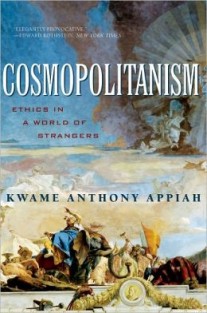“How is everything? How have these first weeks been? How have you been liking the Lycée Français de New York?” My fellow educators and I have been asking these questions to countless new primary and secondary school students over the last several days. Based on past experience, we are hopeful the answers we will receive will be positive, but each person is unique and we do not take anything for granted. Yet rest assured: our newest students are doing extremely well. And if we believe that they are not just being polite in telling us so, it is because they will often emphasize how welcoming they find their peers and their teachers to be. “All is great,” will come the answer. “Everyone is really friendly.”
That sense of friendship being offered is surely one of the most vital gifts we can provide them, not to mention one of the most powerful signs of the values for which our educational community stands. Please forgive me for repeating something you may have heard me say ever since that very first speech I had the pleasure of making at the school, back in January 2011: arguably the most important ethic we must cultivate among our students is what Princeton Professor Kwame Anthony Appiah calls “cosmopolitanism”, understood as the quality of embracing “the other” not simply because we recognize in him or her our shared humanity, but because we know that our possible differences, whatever they might reflect, be it ethnicity, religion, sexual orientation, gender, culture or other such aspects, will be an equally important source of beauty and strength in our lives.
In his brilliant book entitled Cosmopolitanism: Ethics in a World of Strangers, Appiah argues that “for most of human history, we were born into small societies of a few score people, bands of hunters and gatherers, and would see, on a typical day, only people we had known most of our lives. Everything our long-ago ancestors ate or wore, every tool they used, every shrine at which they worshipped, was made within that group” (New York, W. W. Norton & Company, 2006, pp. xi-xii). Suffice it to say that times have changed. As Appiah affirms, with the advent of worldwide population movements and global interdependence, our greatest responsibility is building the future with people who do not necessarily have the same background as ourselves. How exciting and how essential!
In many respects, the openness our newest students have been witnessing is a natural manifestation of who we as individuals are at the Lycée Français, coming as we do from some 50 countries all over the globe and choosing to pursue a bilingual, international program of extraordinary ambition. Our identities are innately cosmopolitan, in keeping with Appiah’s definition of this term. That said, we are also a particularly welcoming community because we believe that the understanding and acceptance and celebration of “the other” which we so much need must also result from constant, purposeful, inspirational effort on our part. It is in that spirit, for instance, that we created a special faculty and staff committee last fall dedicated to nurturing the remarkable diversity that imbues our school (NB. “L’Essentiel” will provide regular updates about this team’s work over the coming year year; in addition, do not hesitate to contact me for further information).
One of our new students said something particularly moving a few days ago, something along the lines of “I love the Lycee because I can be myself here.” Yes. And we will do everything possible to ensure that she, and indeed all of the members of our wonderful educational community, experience this same harmony with themselves and the environment around them not just when they first arrive, but ever more deeply over time, as we journey together on that wondrous path called education.
About the Author :
Sean Lynch was Head of School at the Lycée Français de New York from 2011 to 2018, after having spent 15 years at another French bilingual school outside of Paris: the Lycée International de St. Germain-en-Laye. Holding both French and American nationalities, educated in France (Sciences Po Paris) and the United States (Yale), and as the proud husband of a French-American spouse and father of two French-American daughters, Sean Lynch has spent his entire professional and personal life at the junction between the languages, cultures and educational systems of France and the United States. In addition to being passionate about education, he loves everything related to the mountains, particularly the Parc National du Mercantour.


